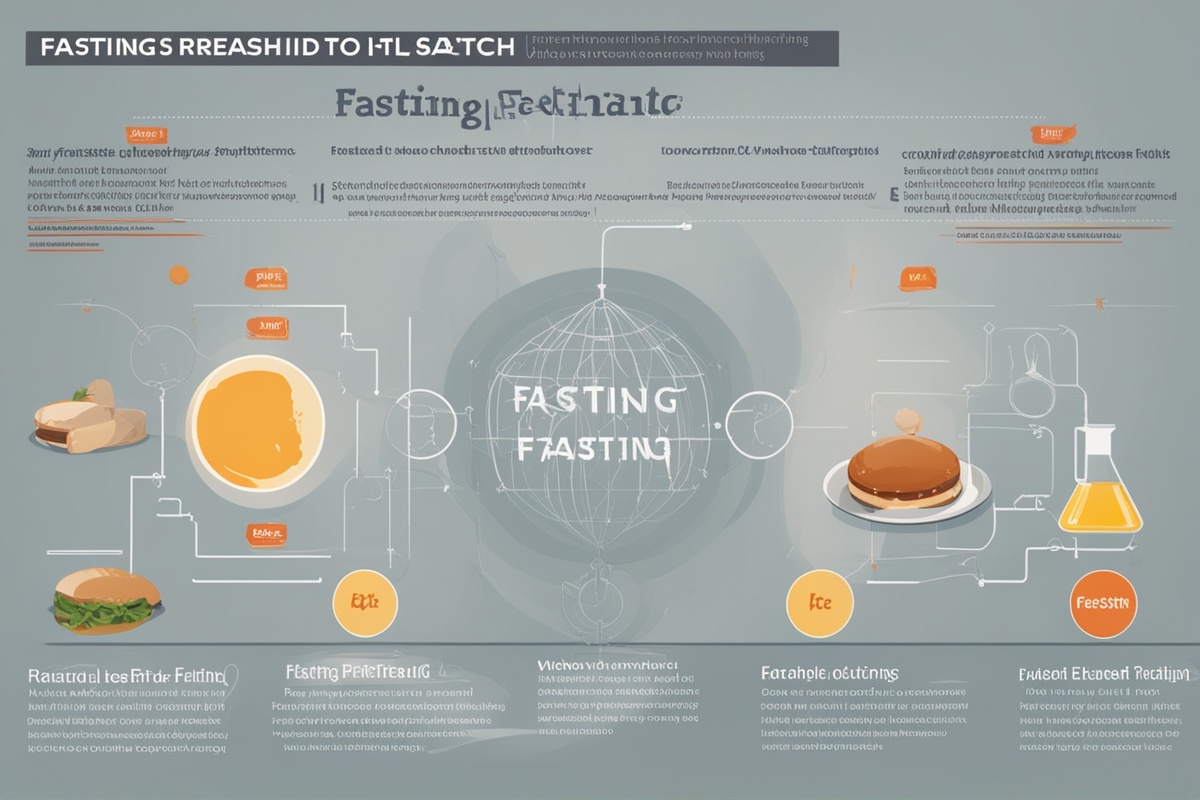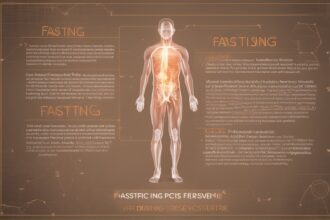Have you ever wondered what the science really says about fasting? With so many diets and health trends out there, fasting has emerged as a powerful tool—not just for weight loss, but for overall wellness. Whether you’re a seasoned faster or just curious about the buzz, diving into fasting research can help you understand why this ancient practice is making waves in modern health circles. In this post, we’ll unpack the latest studies on fasting, explore its benefits and risks, and offer practical tips to incorporate it safely into your life. Let’s dive into the fascinating world of fasting science together!
The Rise of Fasting Research in Modern Science
Over the past decade, fasting research has exploded in the scientific community. What was once considered a spiritual or cultural practice is now being studied in labs worldwide to understand its impact on the human body. Researchers are particularly interested in how fasting affects metabolism, cellular repair, and even longevity. Studies on intermittent fasting (IF), time-restricted eating (TRE), and prolonged fasting have shown promising results, linking fasting to improved insulin sensitivity, reduced inflammation, and even brain health. This growing body of evidence is why so many health enthusiasts are turning to fasting studies for guidance on optimizing their wellness routines.
Key Findings from Recent Fasting Studies
The latest fasting studies have uncovered some pretty incredible insights. For instance, research published in journals like Cell Metabolism and The New England Journal of Medicine highlights how fasting triggers a process called autophagy—a cellular “clean-up” mechanism that removes damaged cells and promotes regeneration. Other fasting science findings point to its role in weight management, with studies showing that intermittent fasting can help reduce body fat while preserving muscle mass. Additionally, fasting has been linked to better blood sugar control, making it a potential strategy for managing or preventing type 2 diabetes. These discoveries are just the tip of the iceberg when it comes to understanding the power of fasting.
Health Benefits Backed by Fasting Science
Let’s break down some of the most exciting health benefits supported by fasting research. Fasting isn’t just about skipping meals; it’s about giving your body a chance to reset. Here are a few ways fasting studies suggest it can transform your health:
- Improved Metabolic Health: Fasting can lower insulin levels and improve sensitivity, reducing the risk of metabolic disorders.
- Heart Health Support: Studies show fasting may lower blood pressure, cholesterol, and triglycerides, key factors in cardiovascular health.
- Brain Function Boost: Fasting research indicates it may enhance cognitive function and protect against neurodegenerative diseases through increased BDNF (brain-derived neurotrophic factor) production.
- Anti-Inflammatory Effects: Fasting reduces markers of inflammation, which are linked to chronic diseases like arthritis and cancer.
These benefits, backed by rigorous fasting studies, make a compelling case for trying fasting under the right conditions. However, it’s important to approach it with knowledge and caution, as not everyone’s body responds the same way.
Potential Risks and Considerations in Fasting Studies
While the benefits are exciting, fasting science also warns of potential downsides. Research on fasting has shown that it’s not a one-size-fits-all solution. For some, fasting can lead to fatigue, irritability, or even nutrient deficiencies if not done properly. Studies also caution against fasting for certain groups, such as pregnant women, individuals with eating disorders, or those with specific medical conditions. Fasting research emphasizes the importance of personalization—listening to your body and consulting a healthcare provider before starting any fasting regimen. The goal is to harness the benefits while minimizing risks, and science is clear that balance is key.
Practical Tips to Start Fasting Based on Research
Ready to give fasting a try? Let’s translate the insights from fasting research into actionable steps. Fasting doesn’t have to be intimidating, especially if you start small and build gradually. Here are some science-backed tips to help you begin:
- Start with Time-Restricted Eating: Limit your eating window to 8–10 hours a day (e.g., 12 PM to 8 PM) to ease into fasting.
- Stay Hydrated: Fasting studies stress the importance of drinking water, herbal teas, or black coffee to prevent dehydration during fasting periods.
- Focus on Nutrient-Dense Meals: When you do eat, prioritize whole foods like vegetables, lean proteins, and healthy fats to support your body.
- Monitor Your Body’s Signals: Research on fasting shows that hunger cues often diminish over time, but stop if you feel dizzy or unwell.
- Consult a Professional: Before diving into prolonged fasting, speak with a doctor or dietitian to ensure it’s safe for you.
By following these tips, you can align your fasting practice with the latest fasting studies and set yourself up for success. Remember, consistency and patience are more important than perfection.
The Future of Fasting Research and What to Expect
The field of fasting research is still evolving, and there’s so much more to learn. Scientists are currently exploring how fasting impacts gut health, cancer prevention, and even mental health conditions like anxiety and depression. Clinical trials are underway to determine the optimal fasting protocols for different populations, from athletes to older adults. As fasting science advances, we can expect more personalized recommendations and a deeper understanding of how fasting interacts with genetics and lifestyle factors. Staying tuned to the latest fasting studies will be key for anyone looking to maximize the benefits of this practice in the years to come.
In wrapping up, it’s clear that fasting research offers a wealth of insights into how this age-old practice can benefit modern health. From boosting metabolic health to supporting brain function, the science behind fasting is both exciting and promising. However, it’s not without its challenges, and the key takeaway from fasting studies is to approach it mindfully and with professional guidance if needed. Whether you’re looking to shed a few pounds, improve your energy, or simply explore a new wellness strategy, fasting—backed by solid research—might just be worth a try. So, why not start small, stay informed with the latest fasting science, and see how your body responds? Share your thoughts or experiences with fasting in the comments—we’d love to hear from you!






